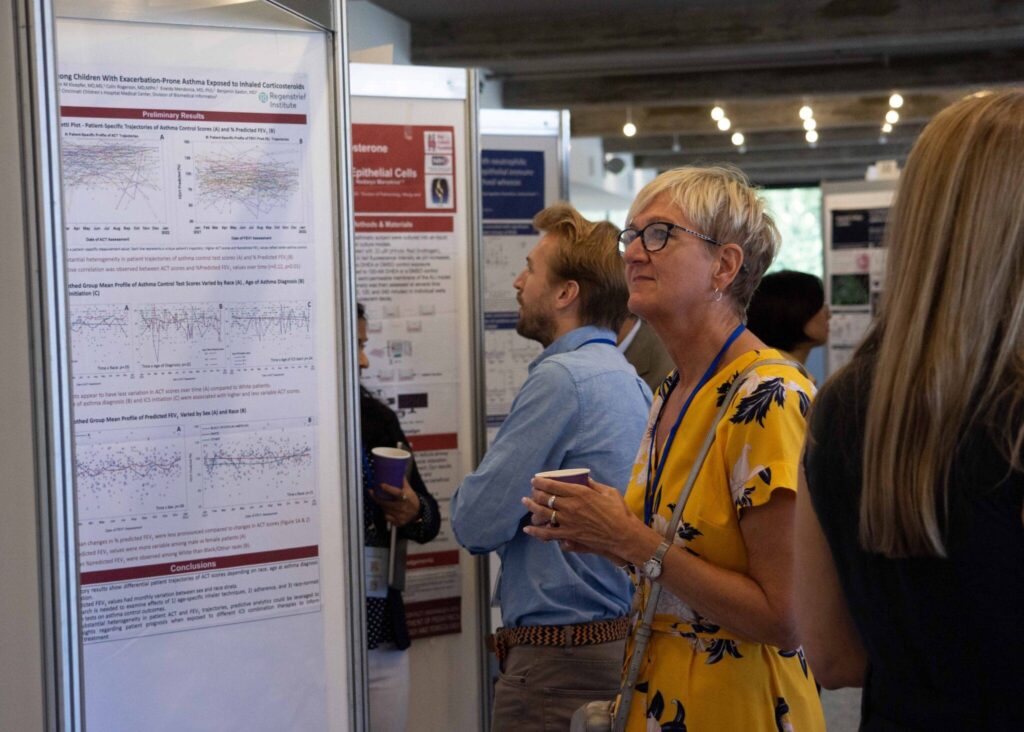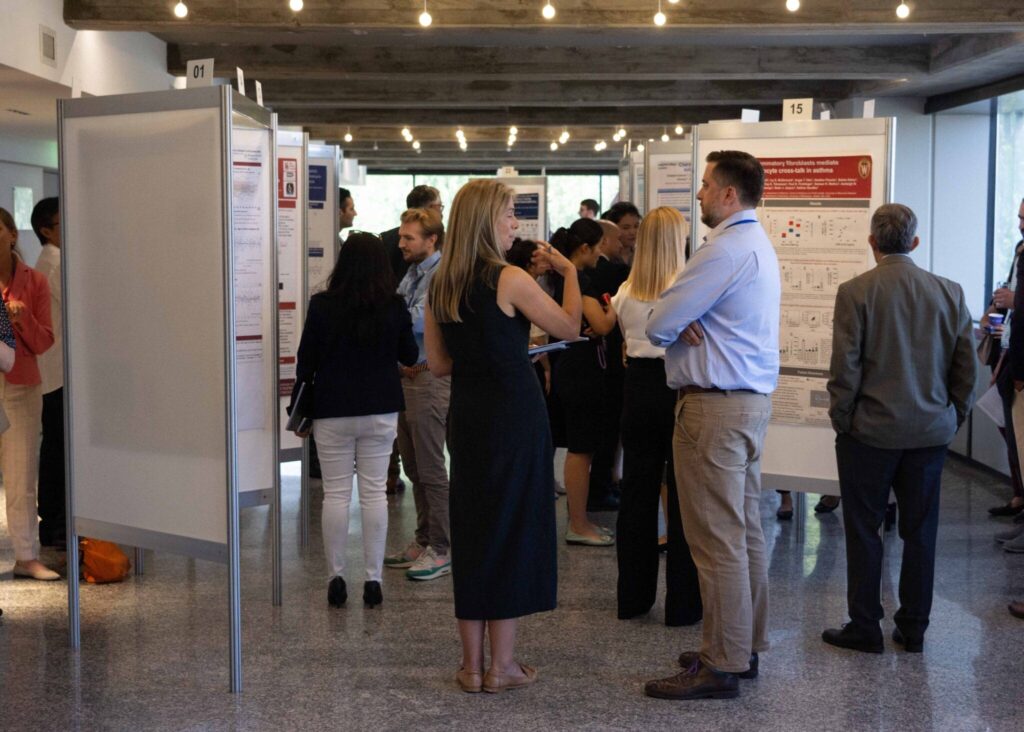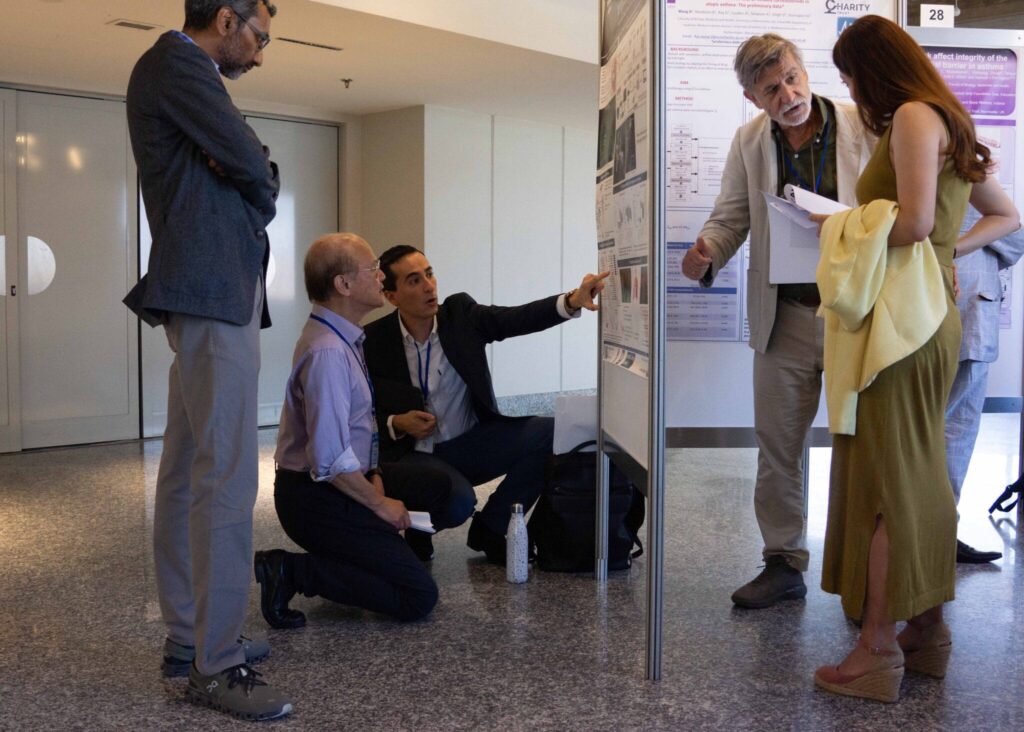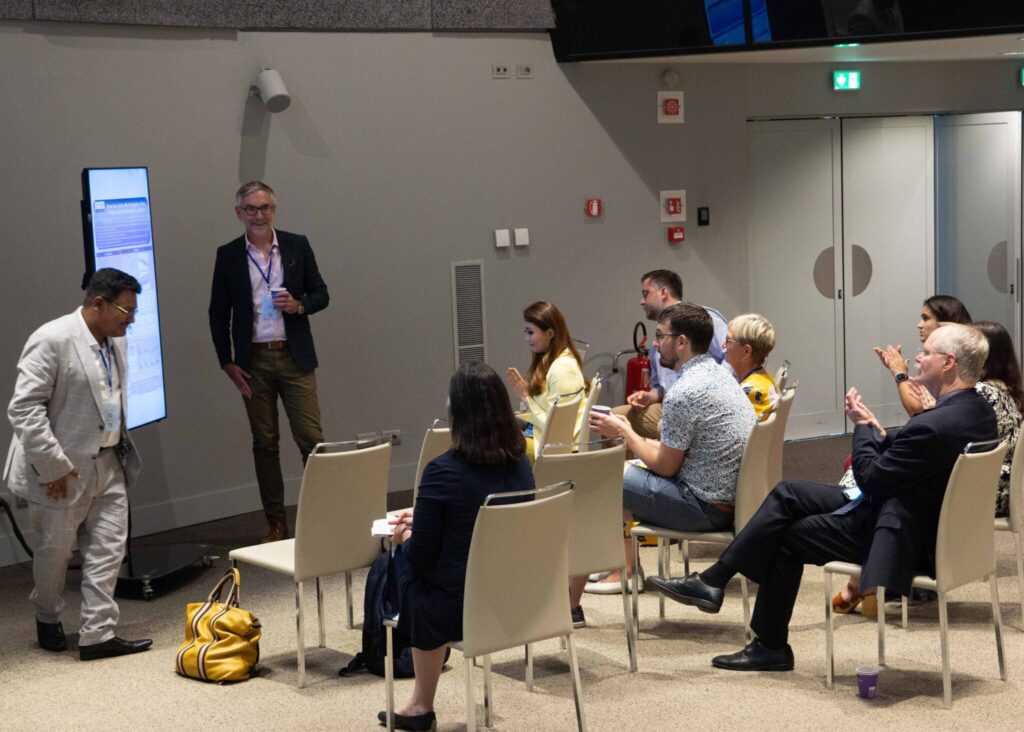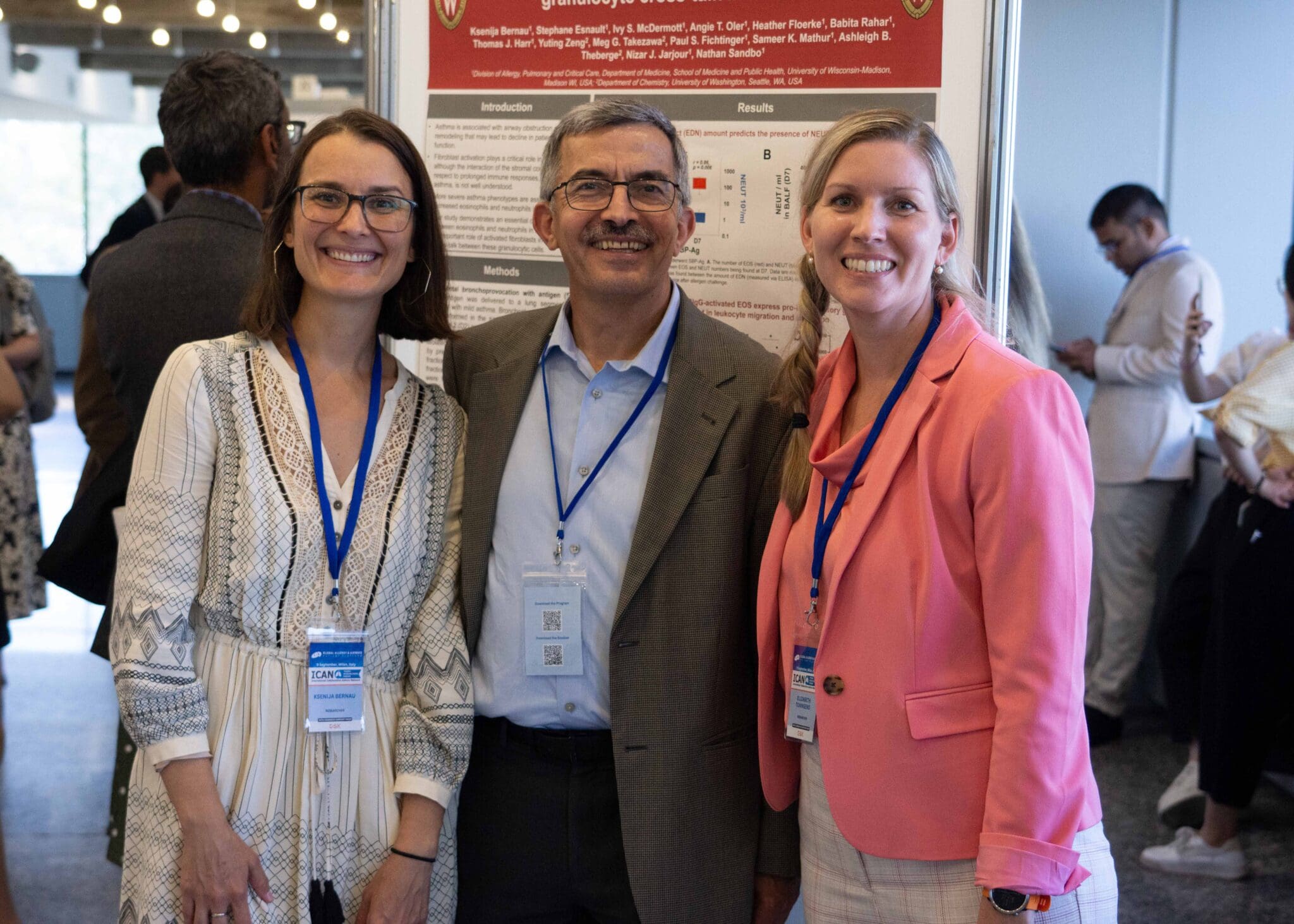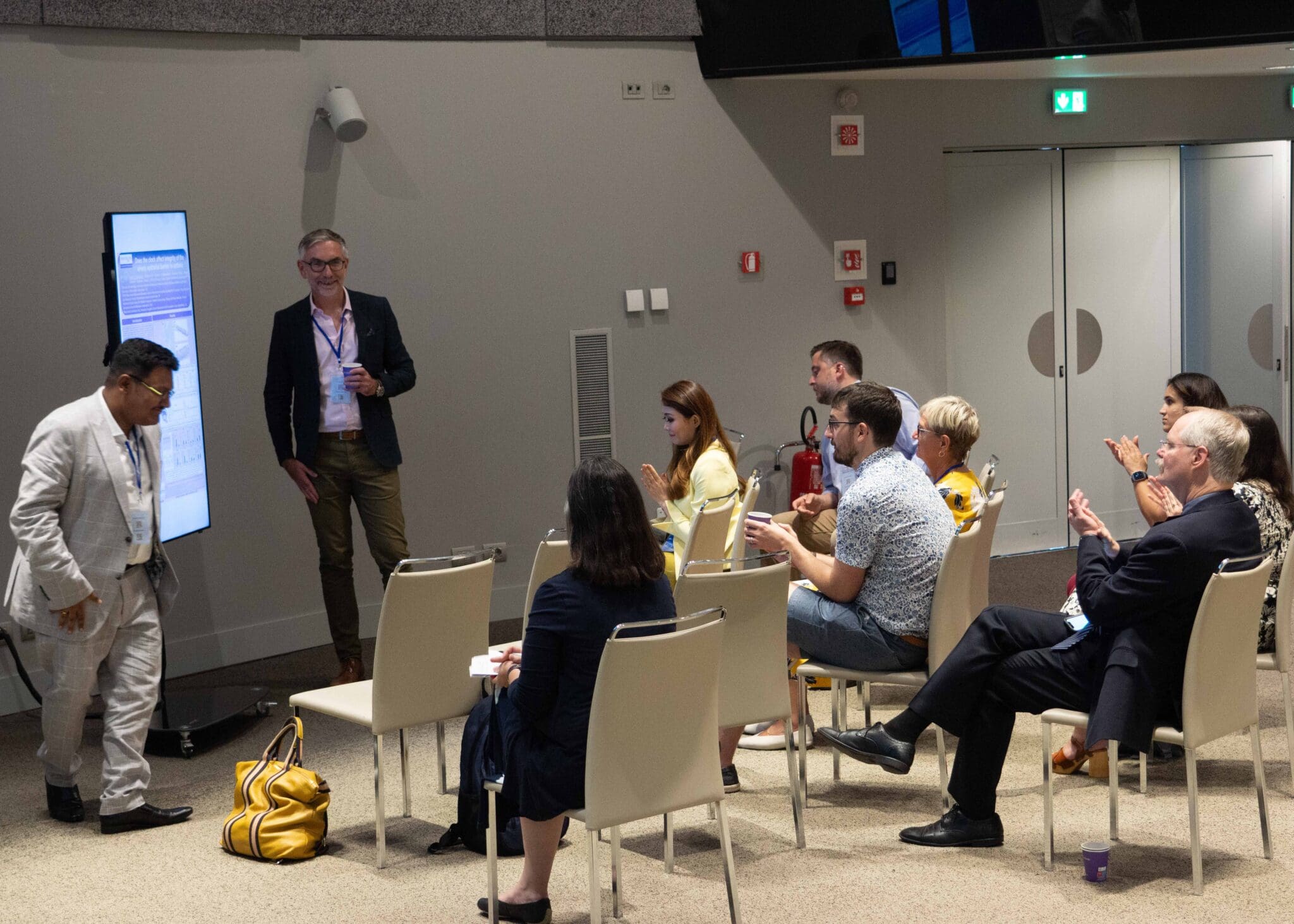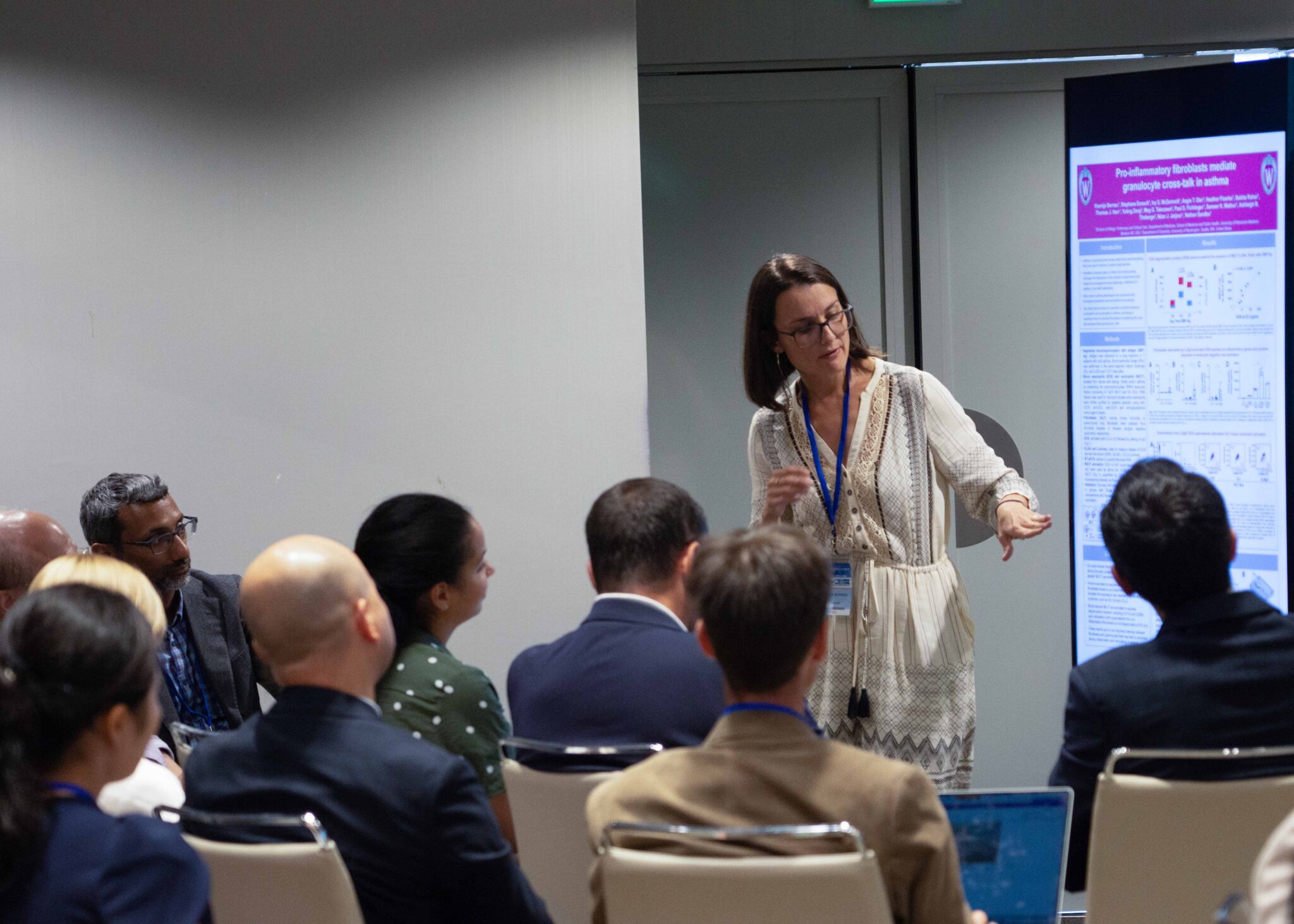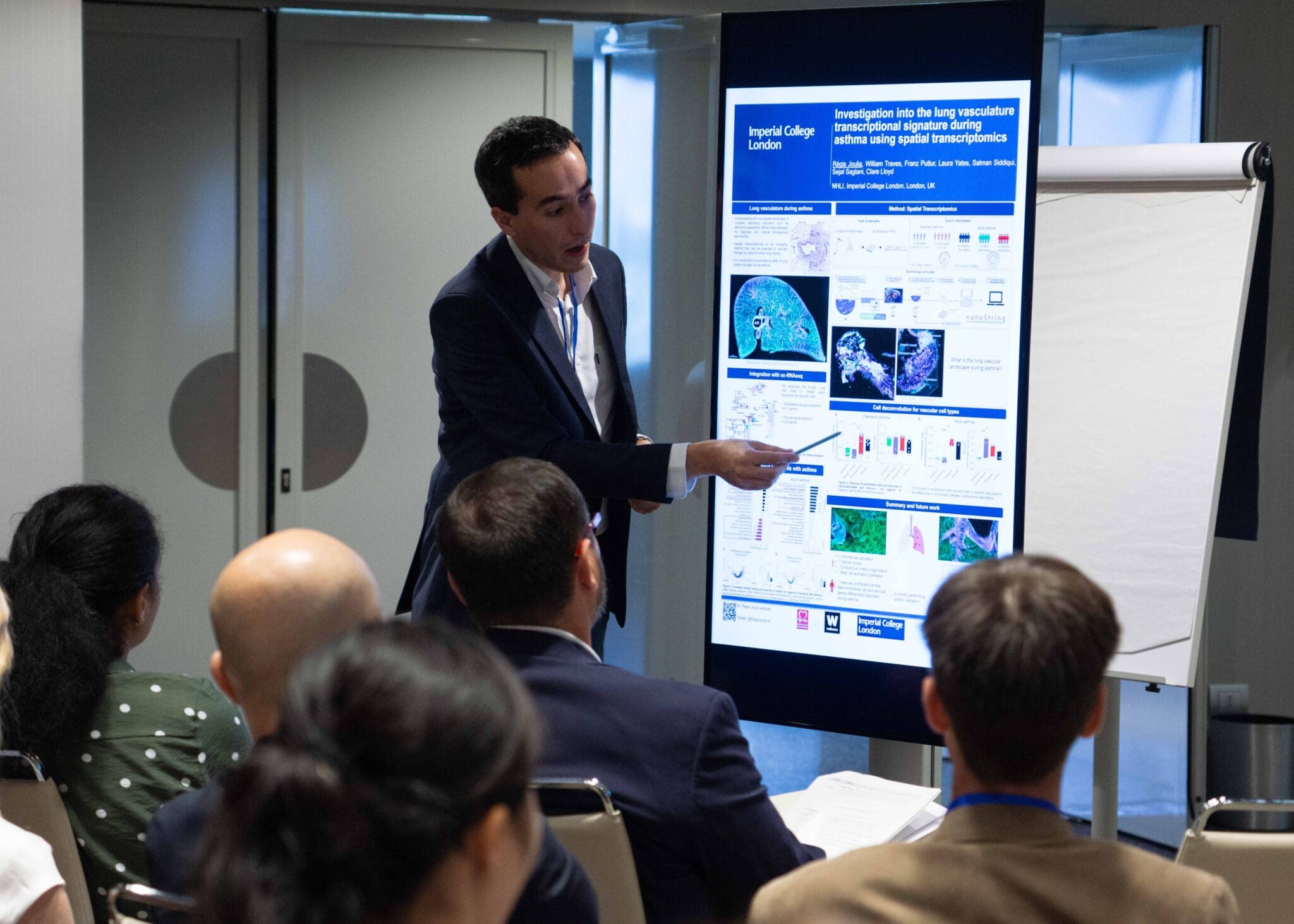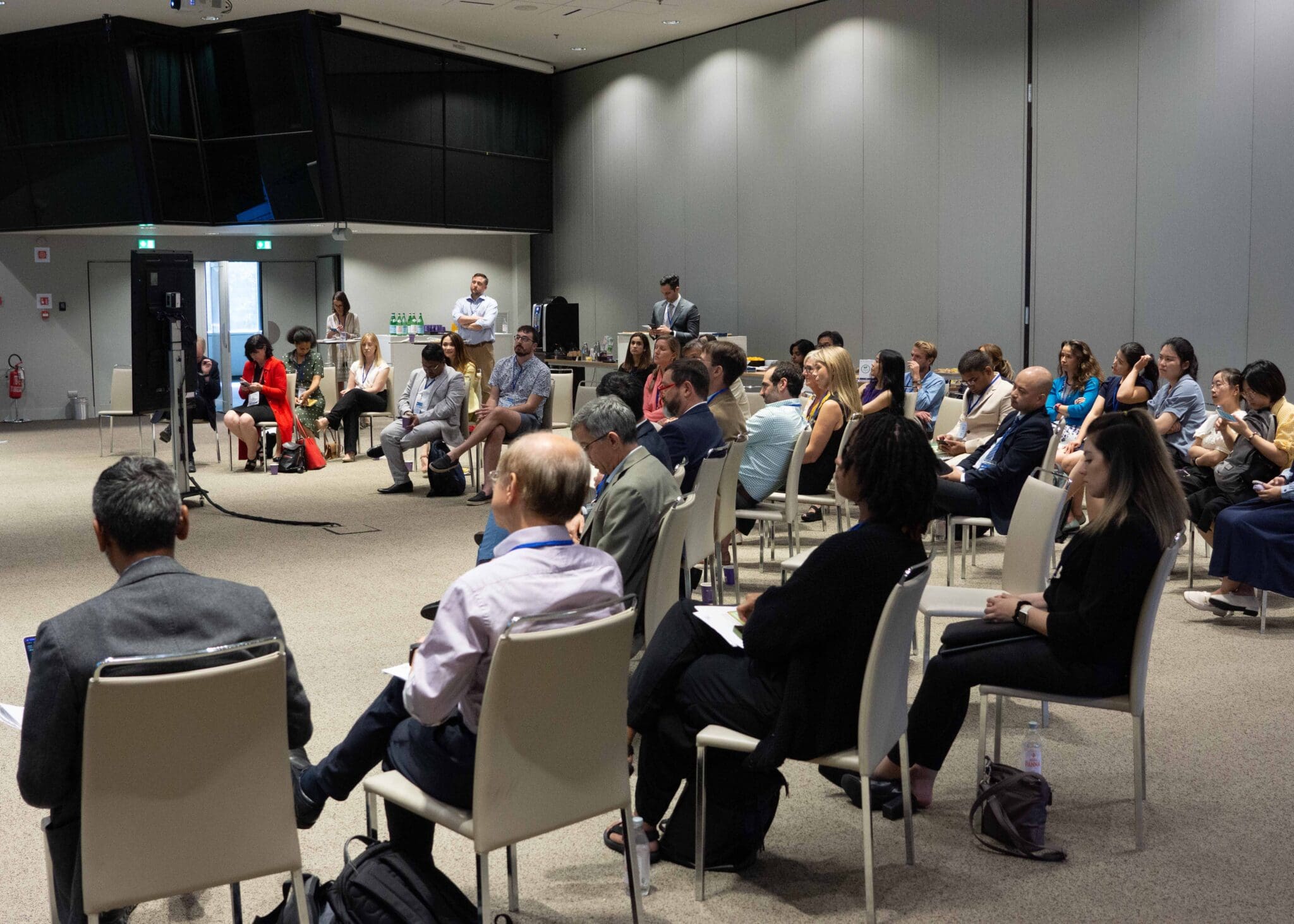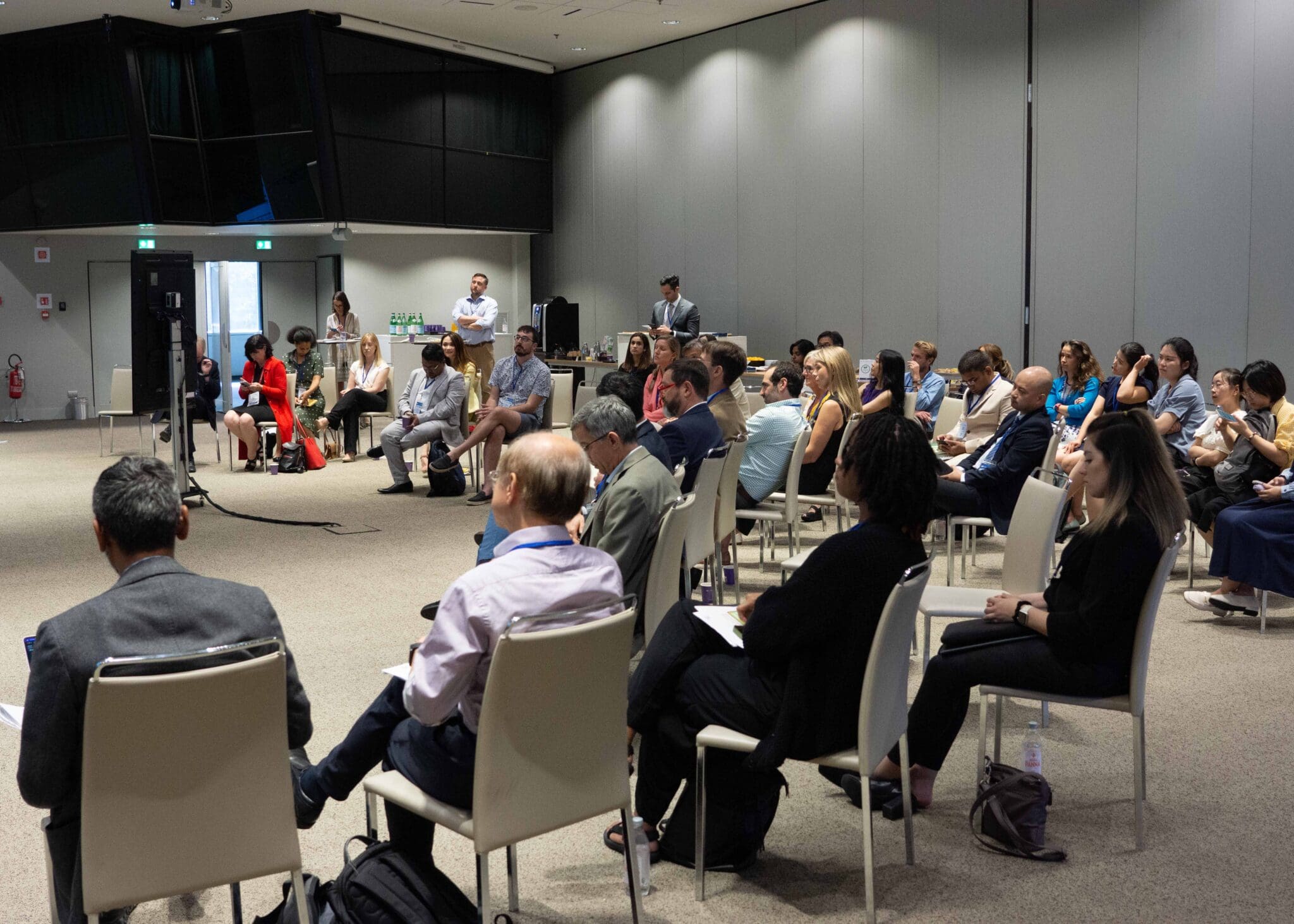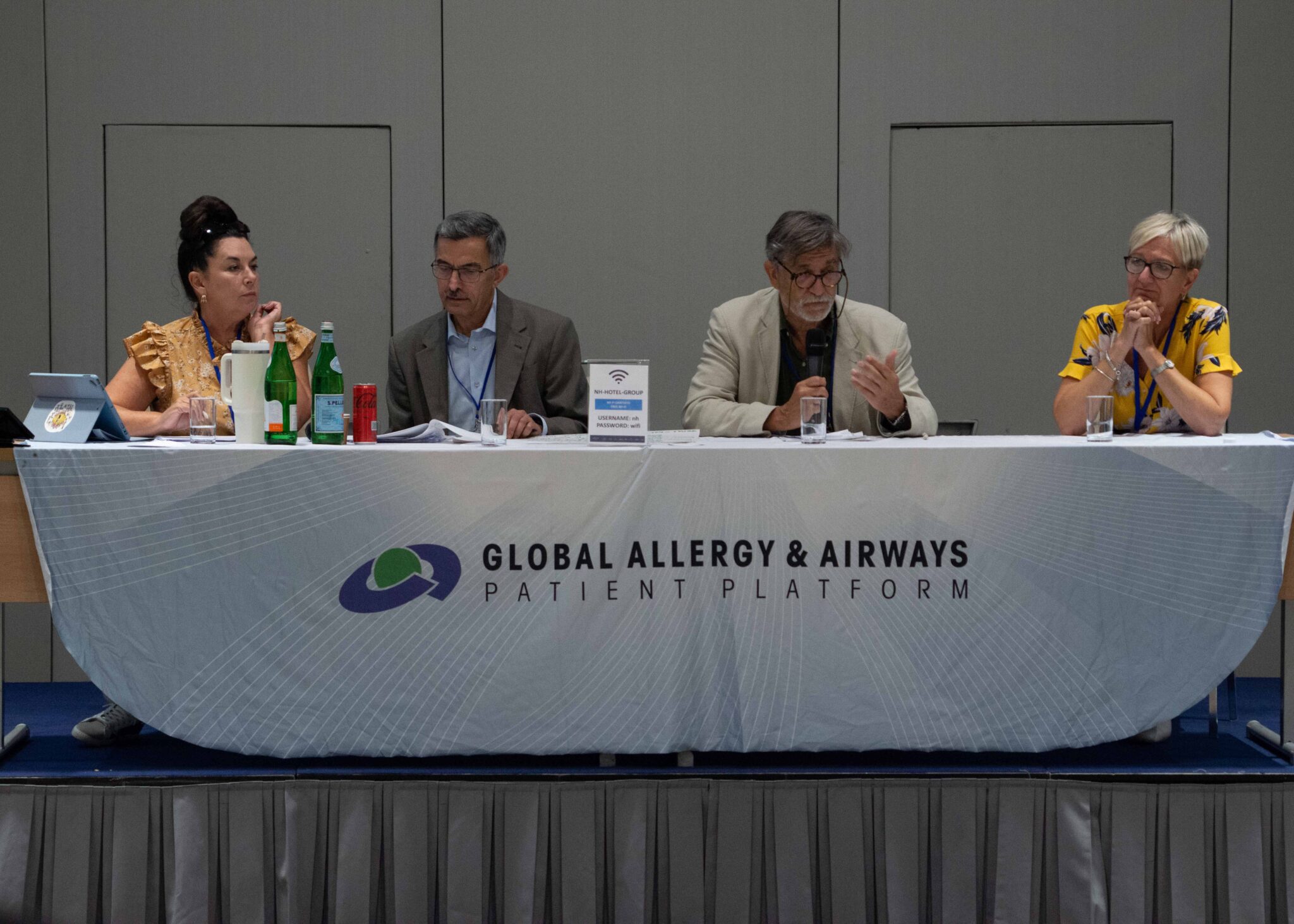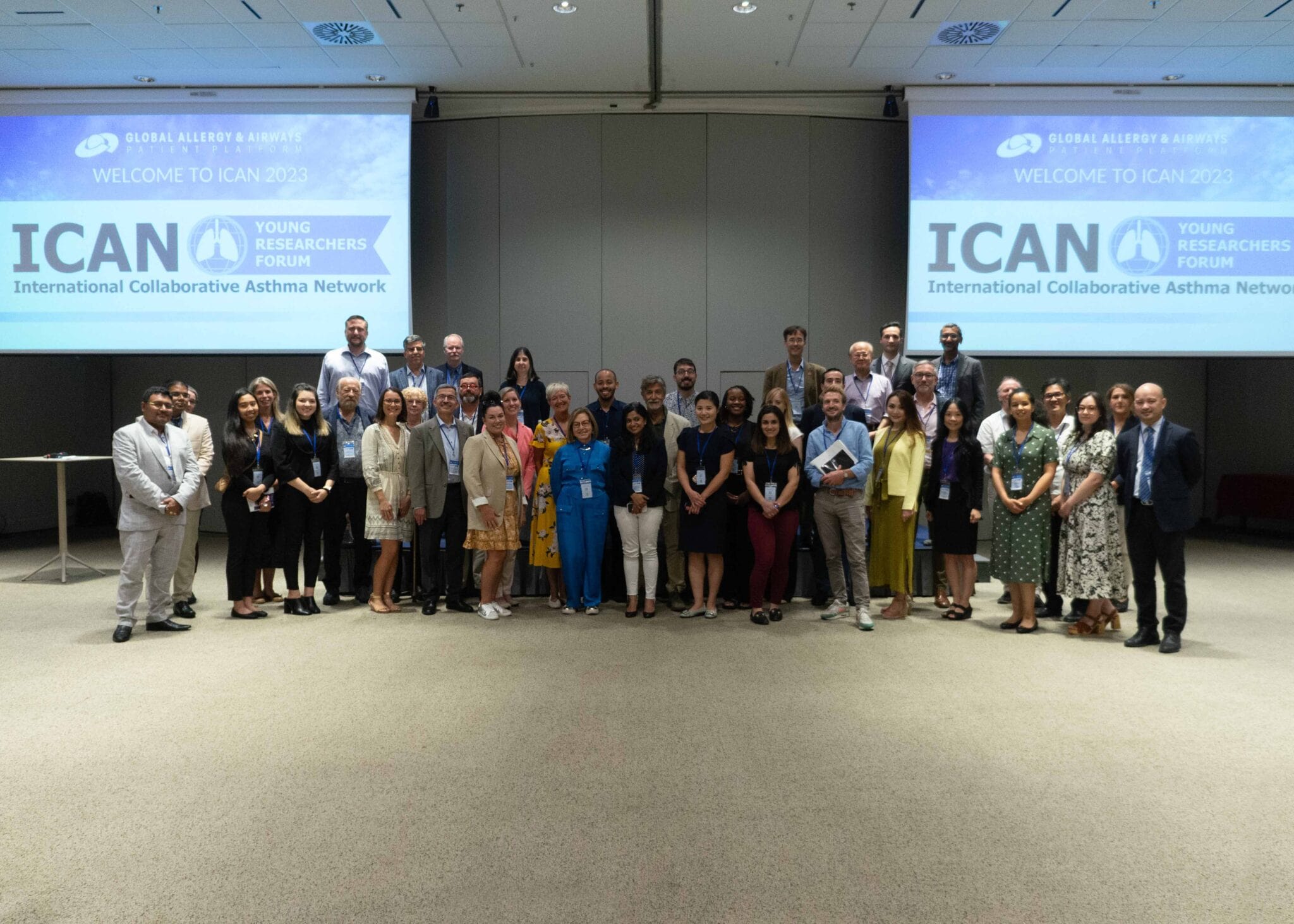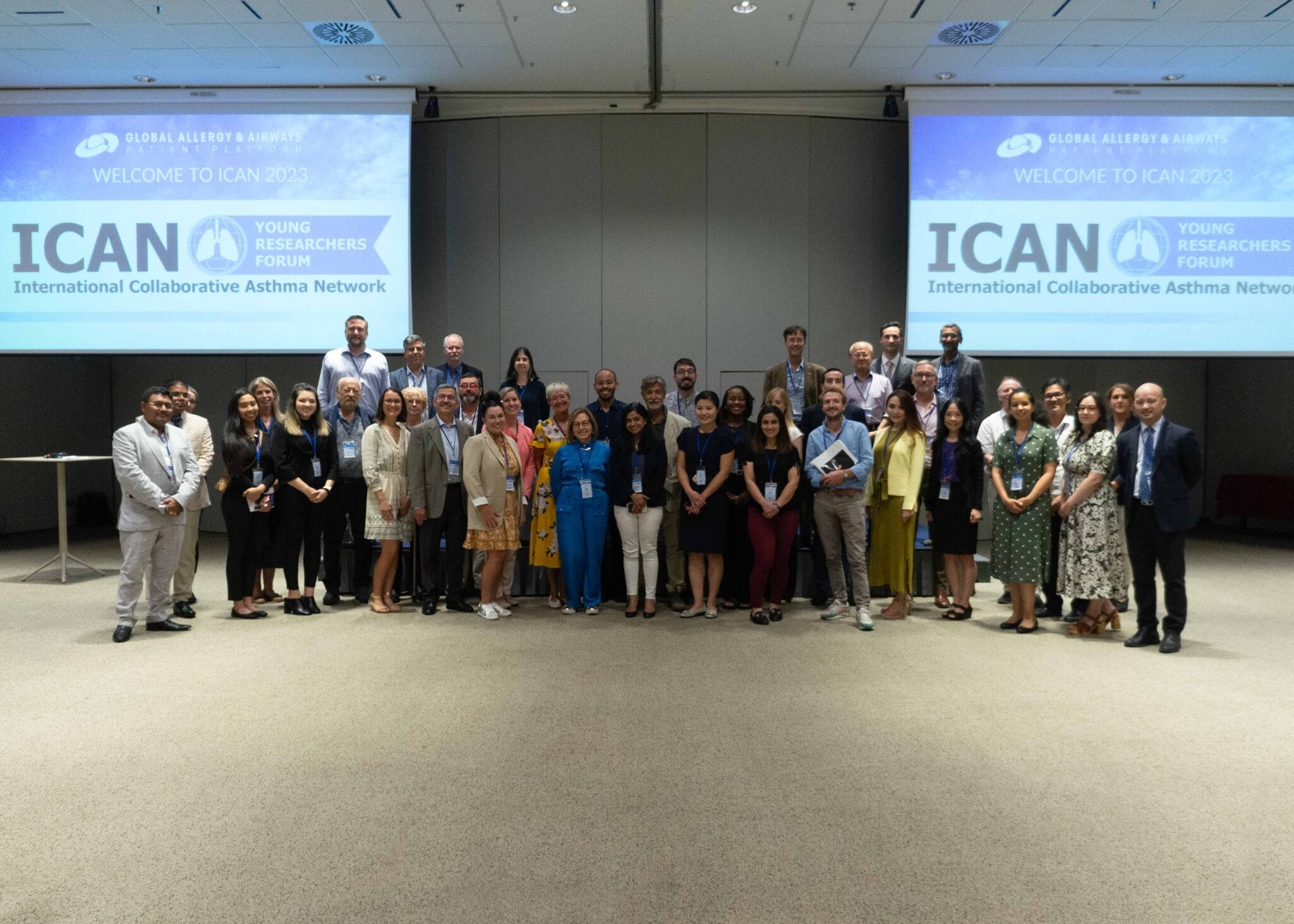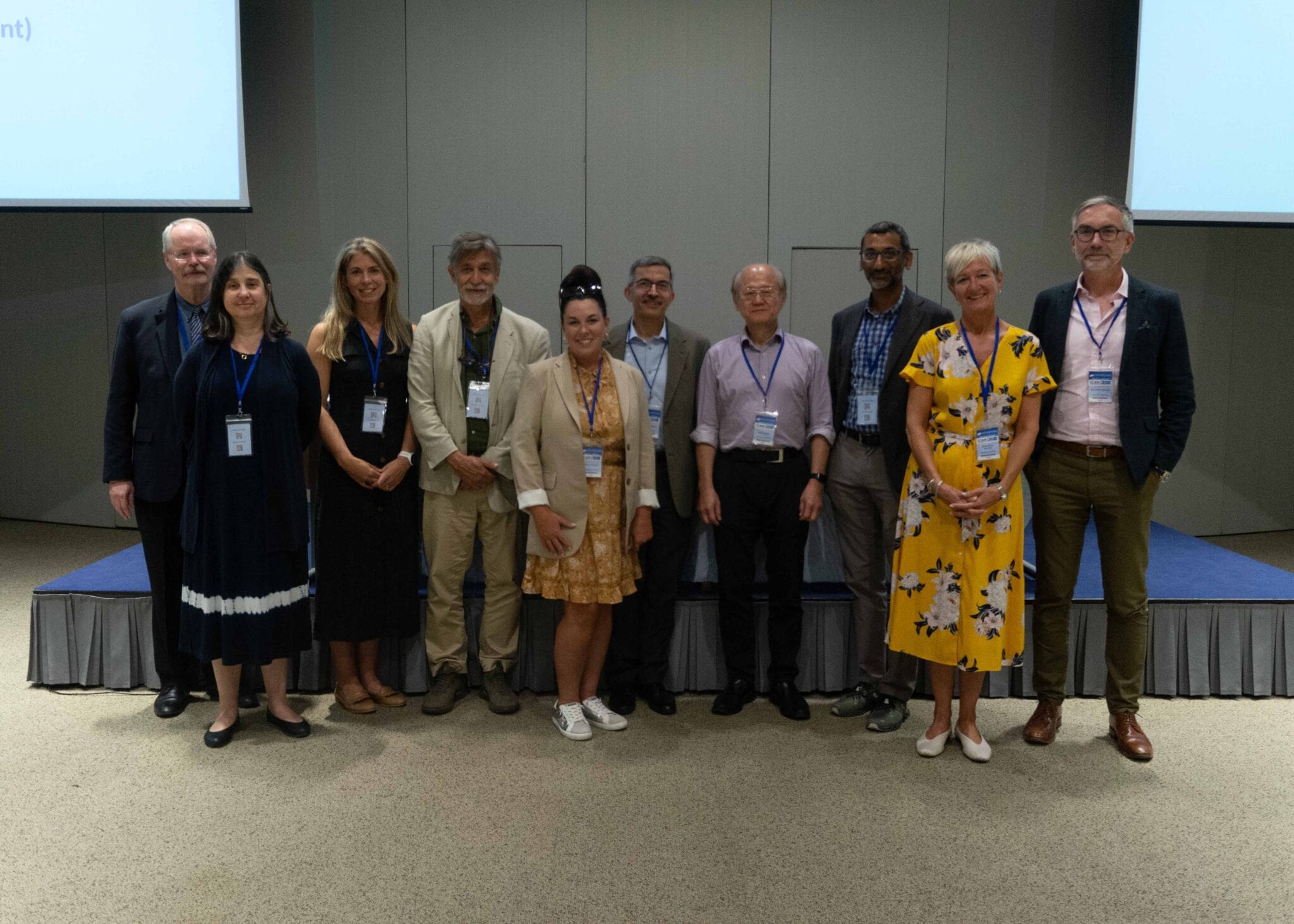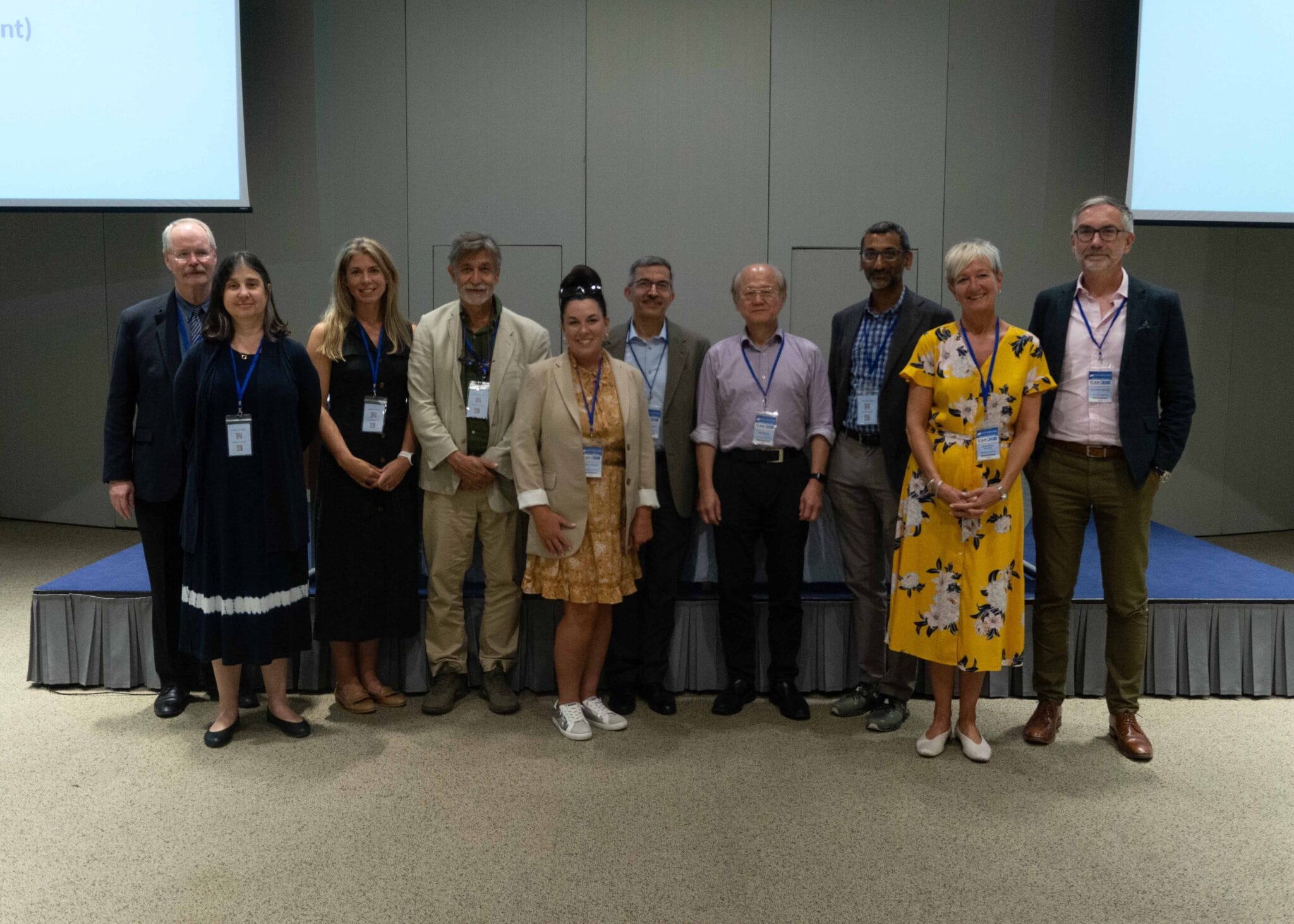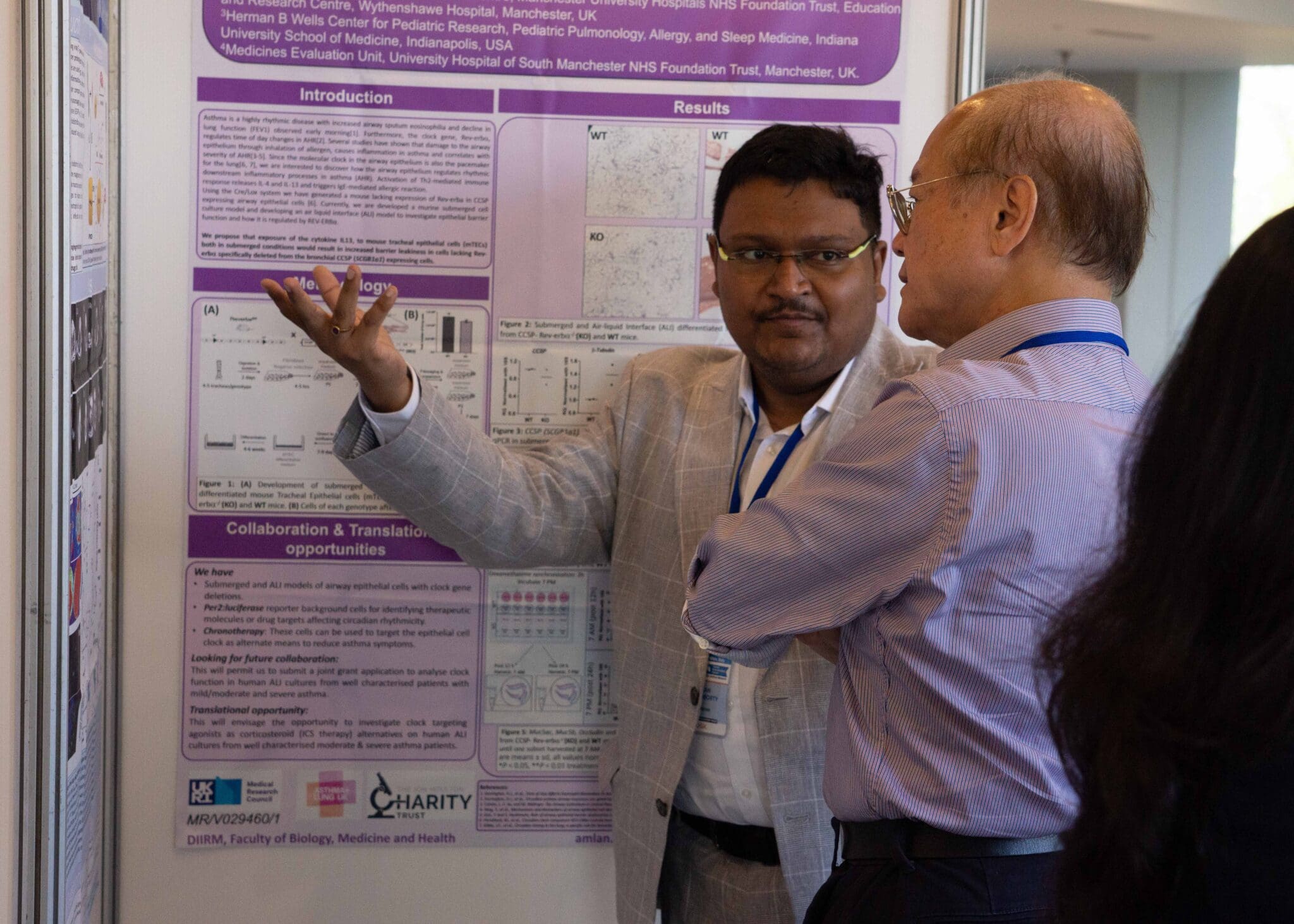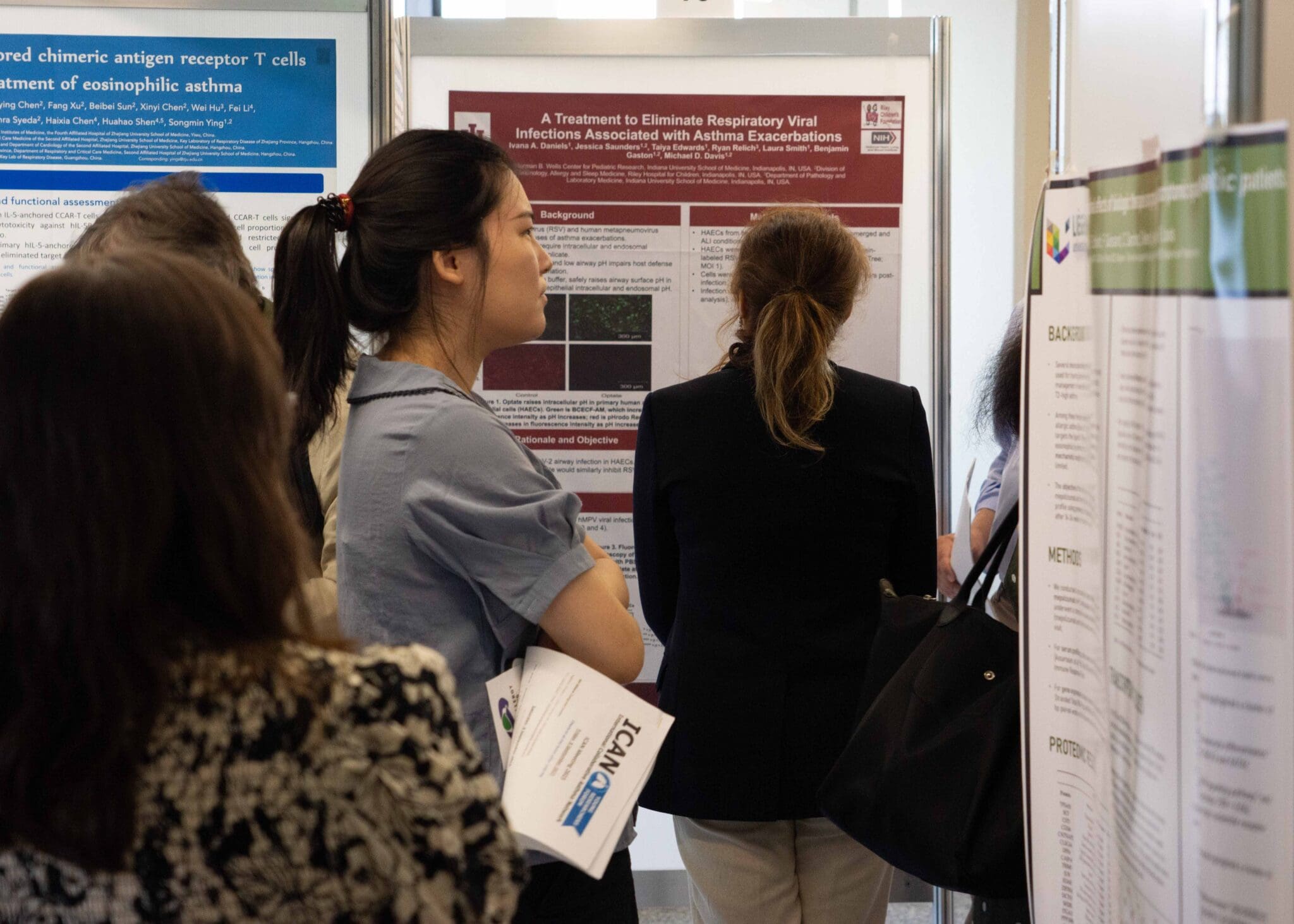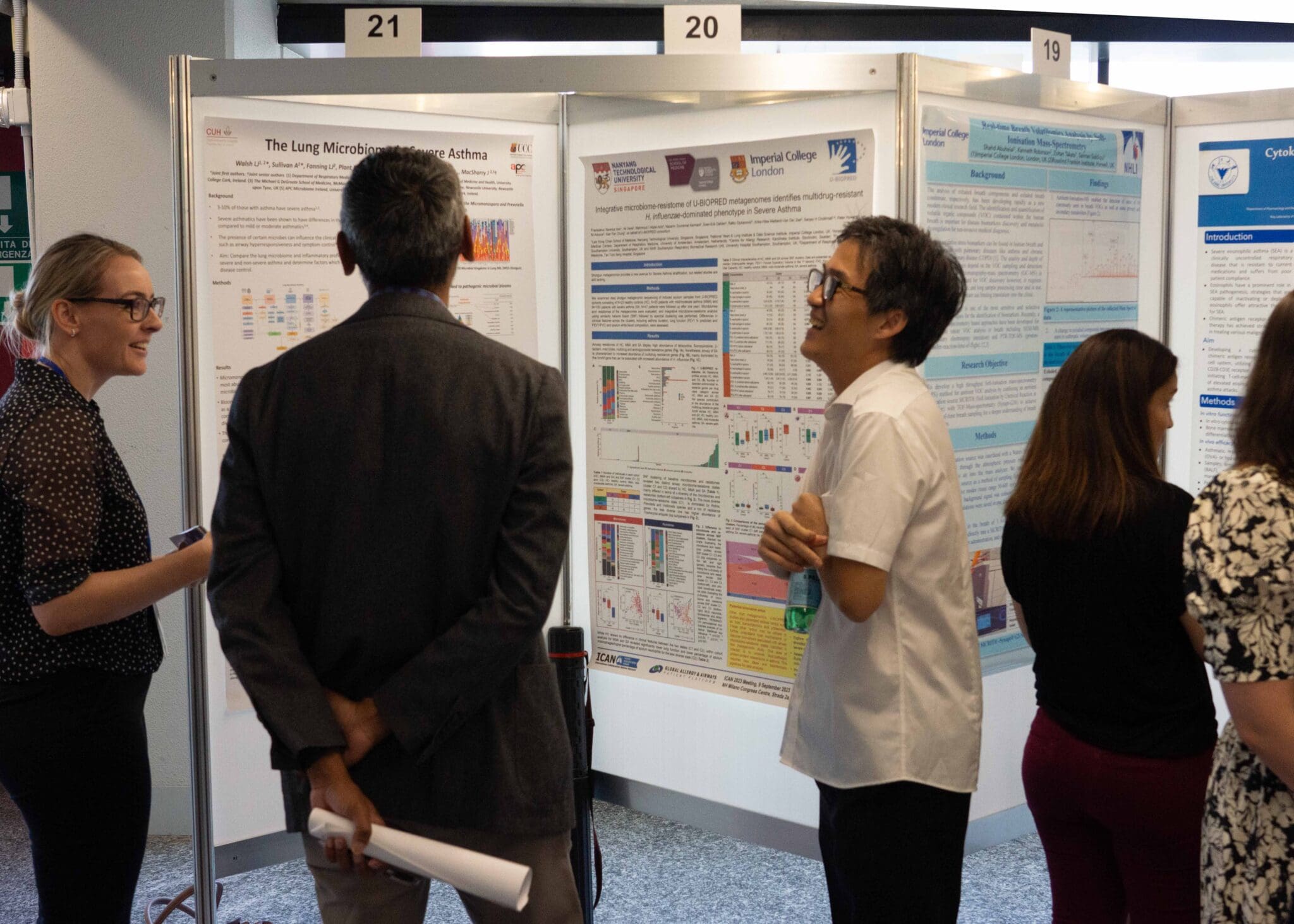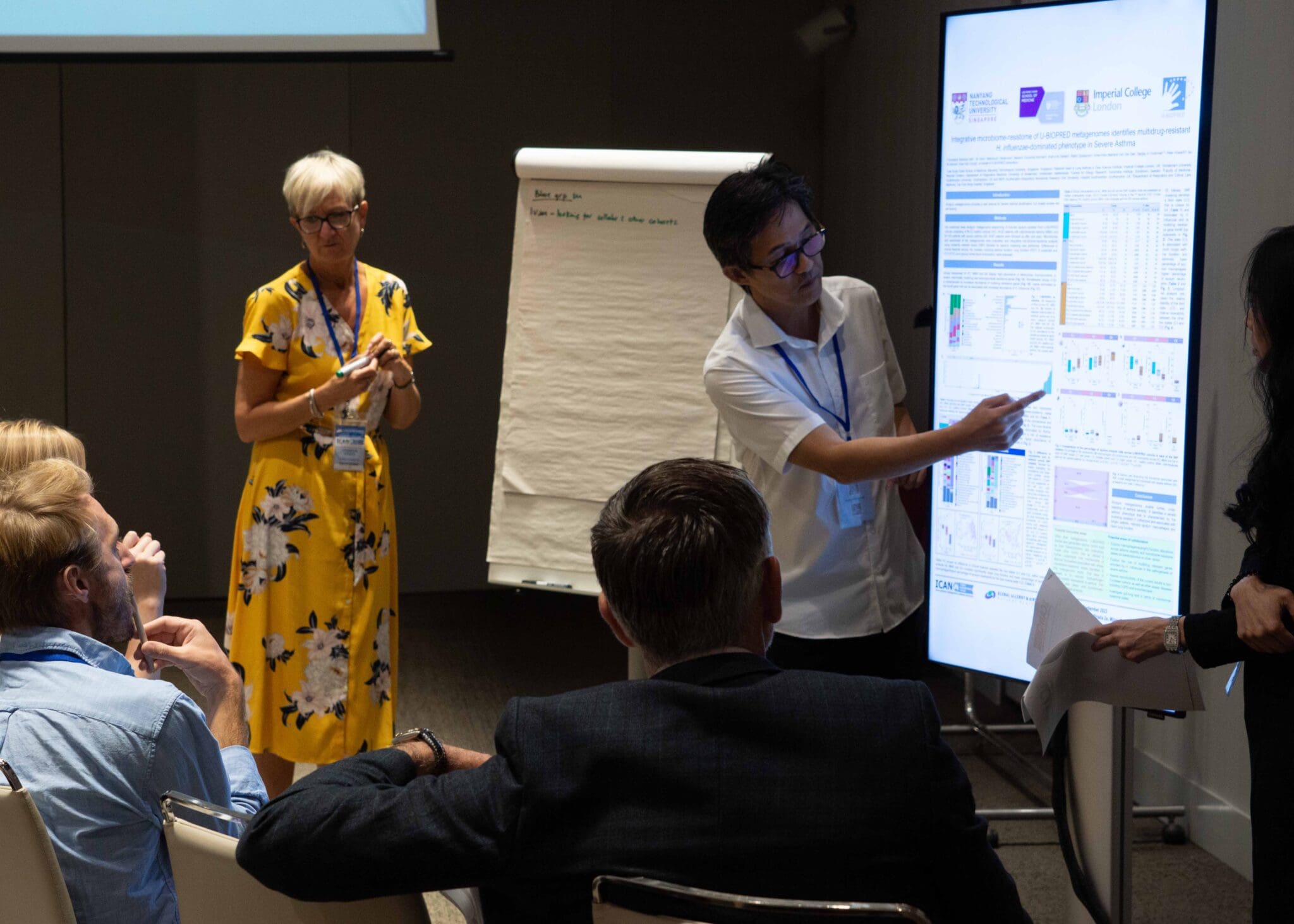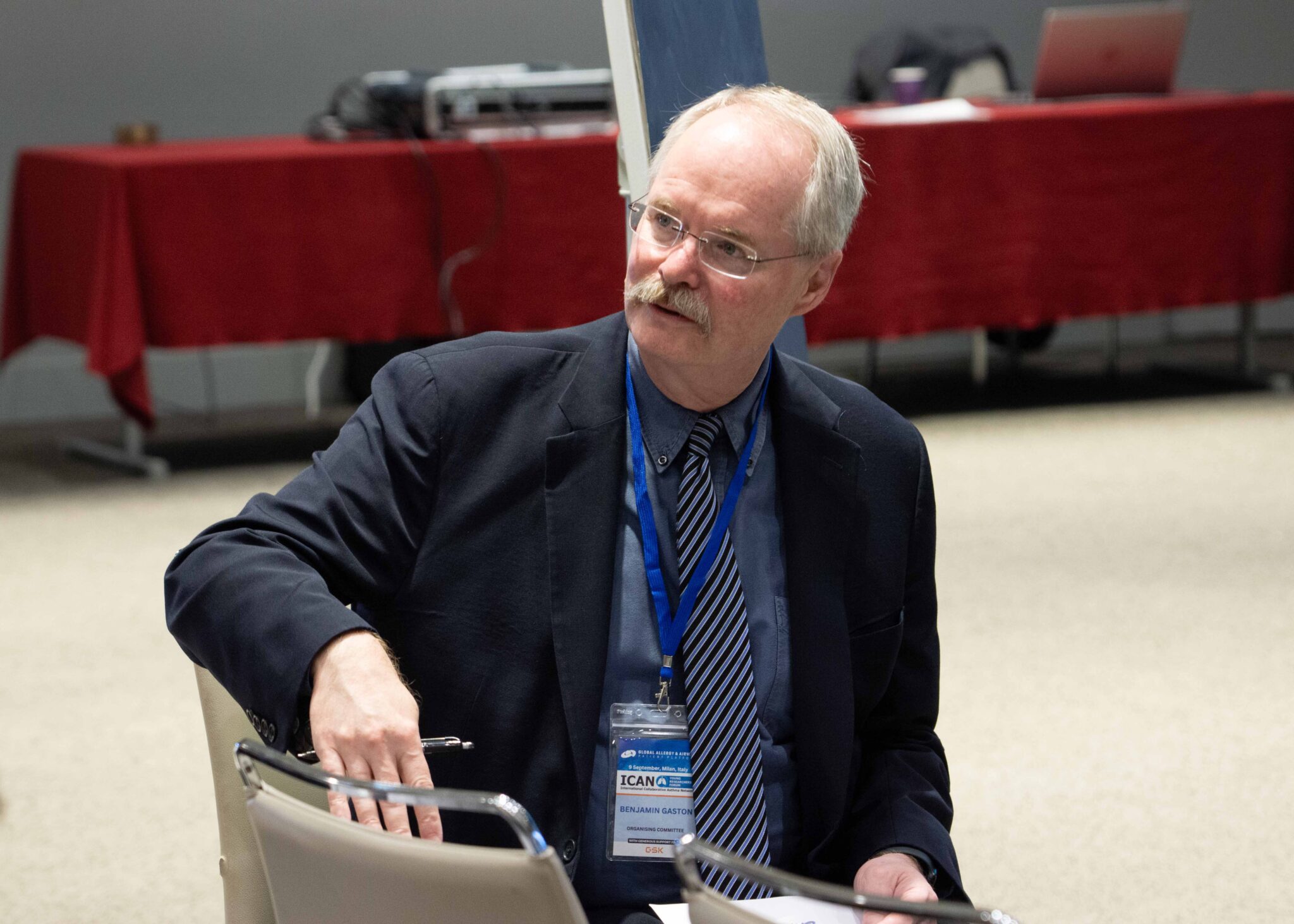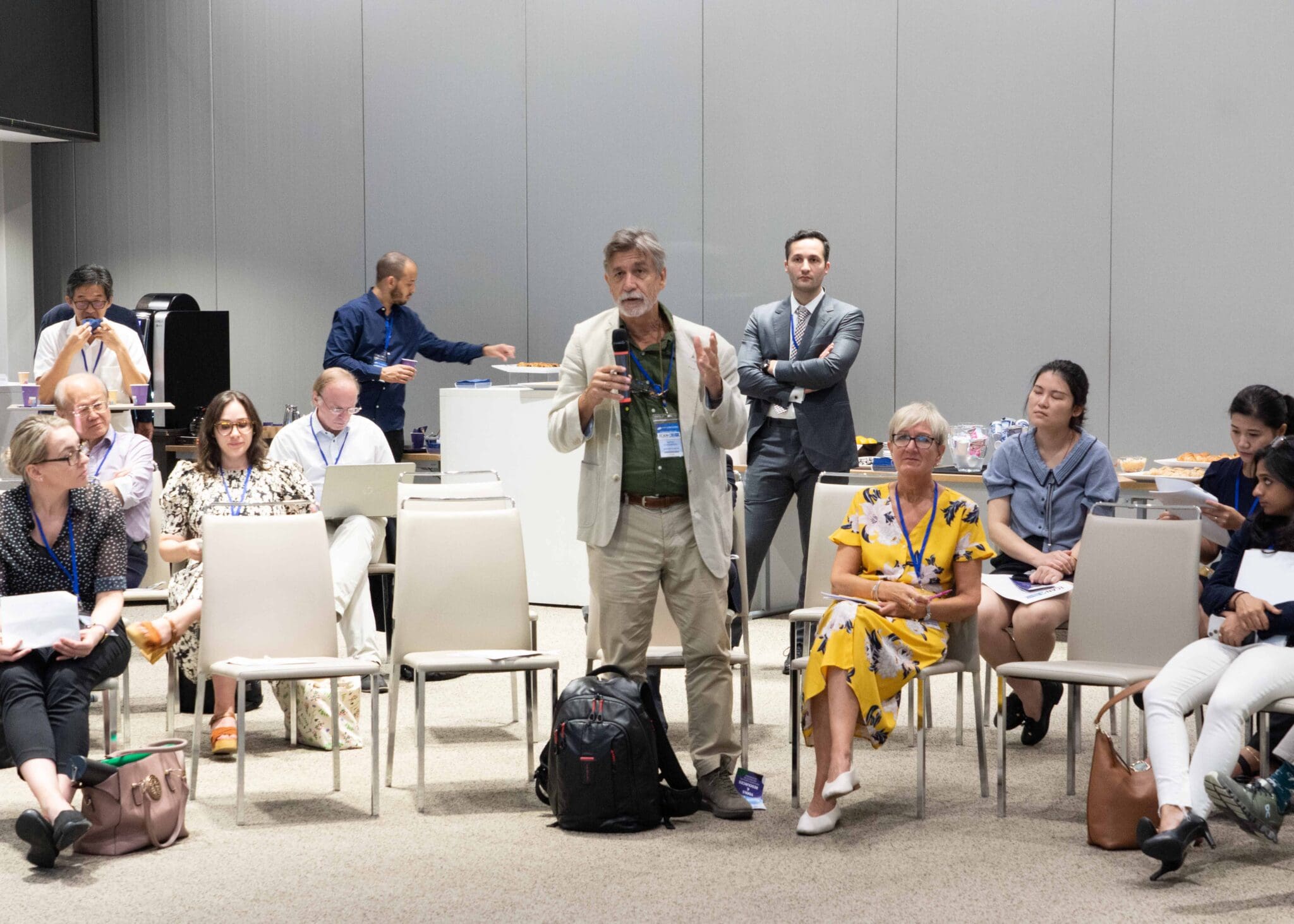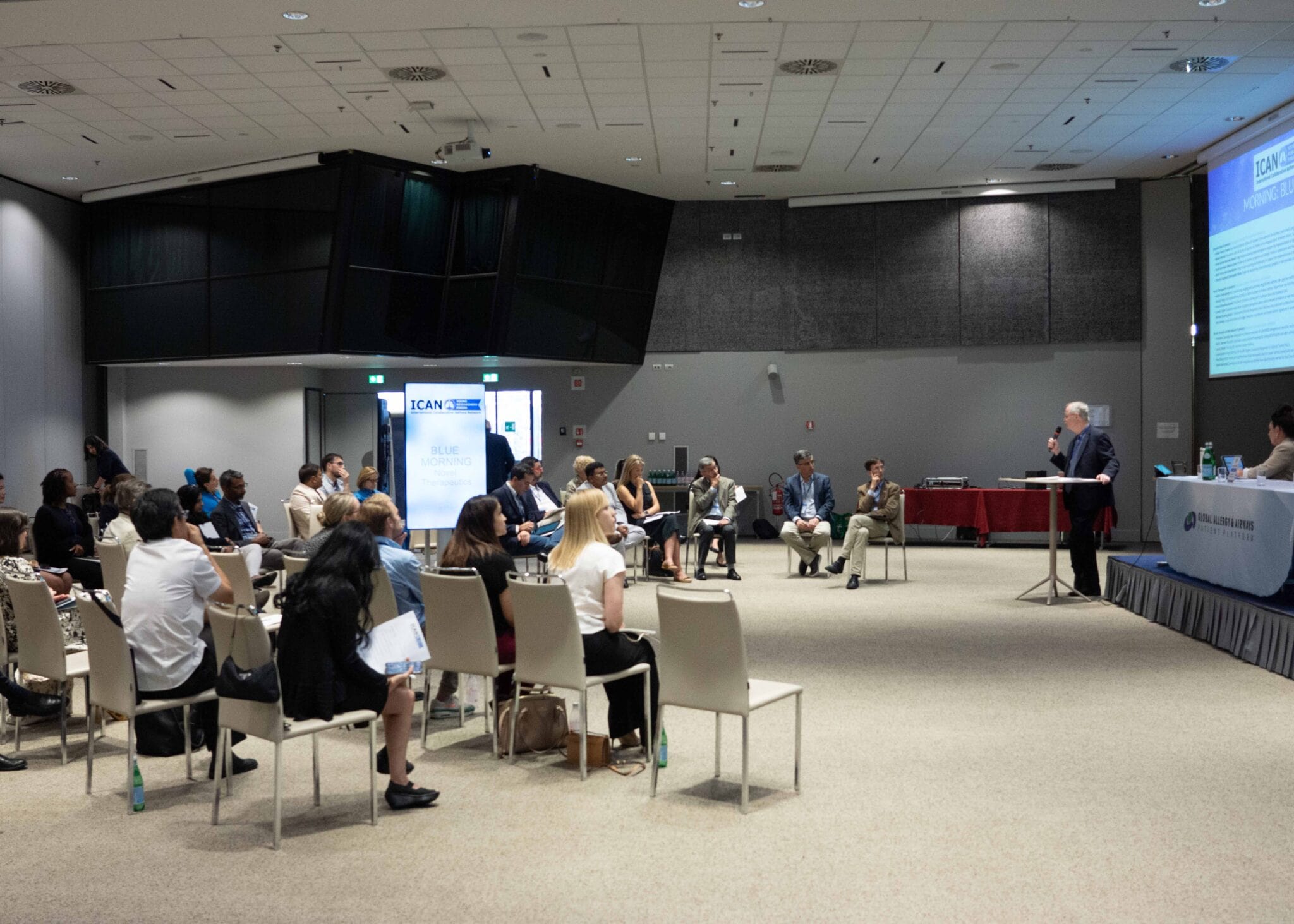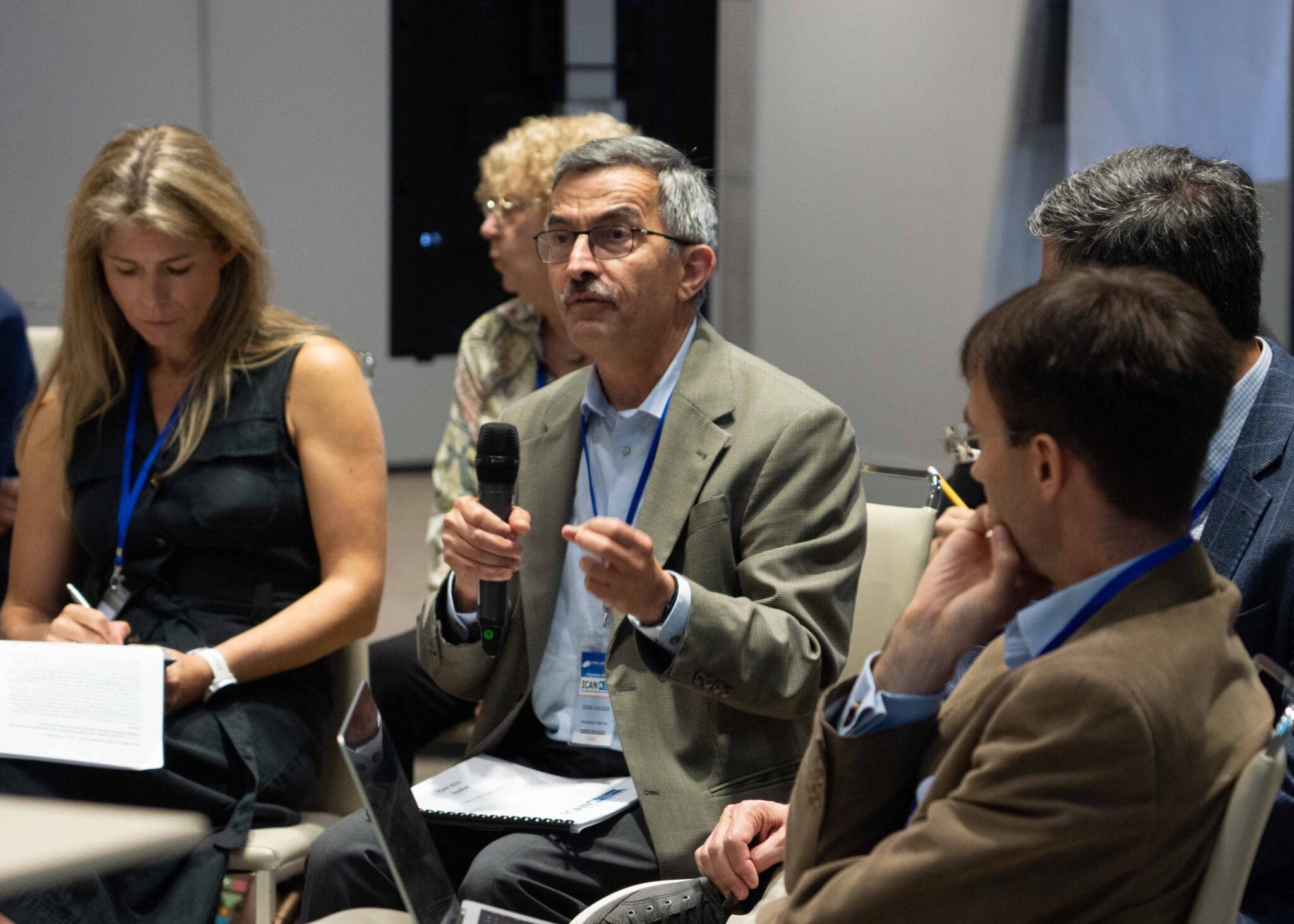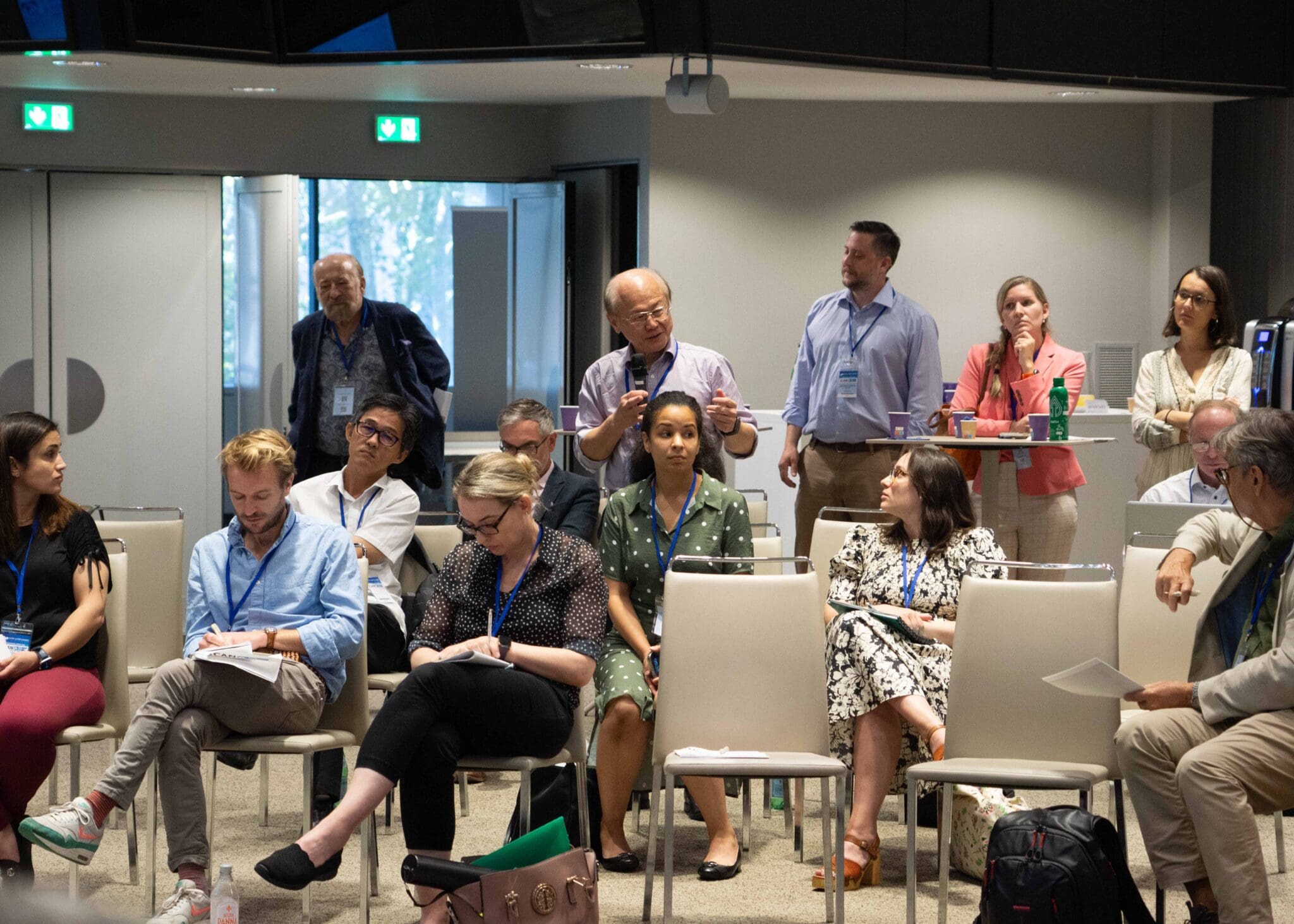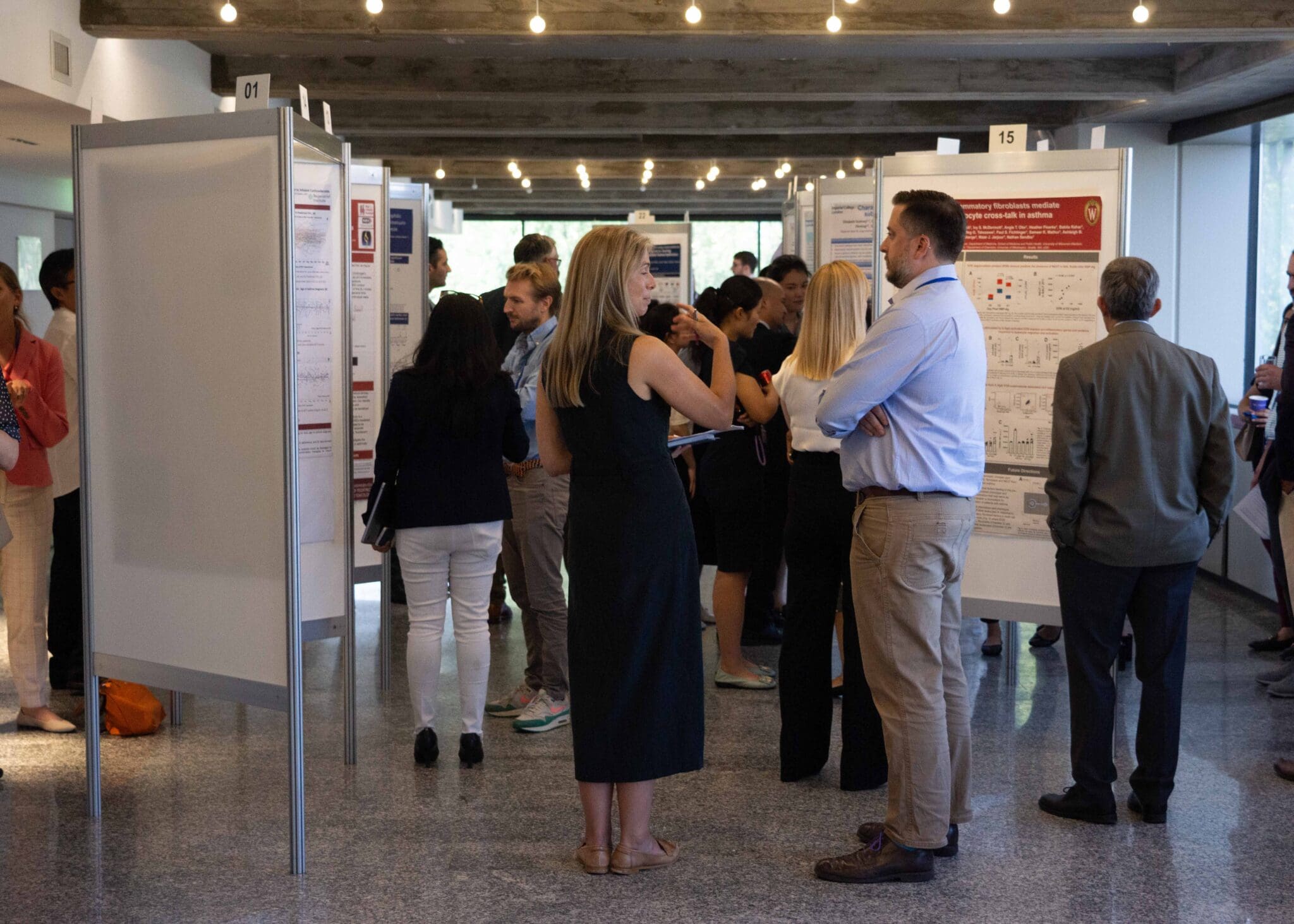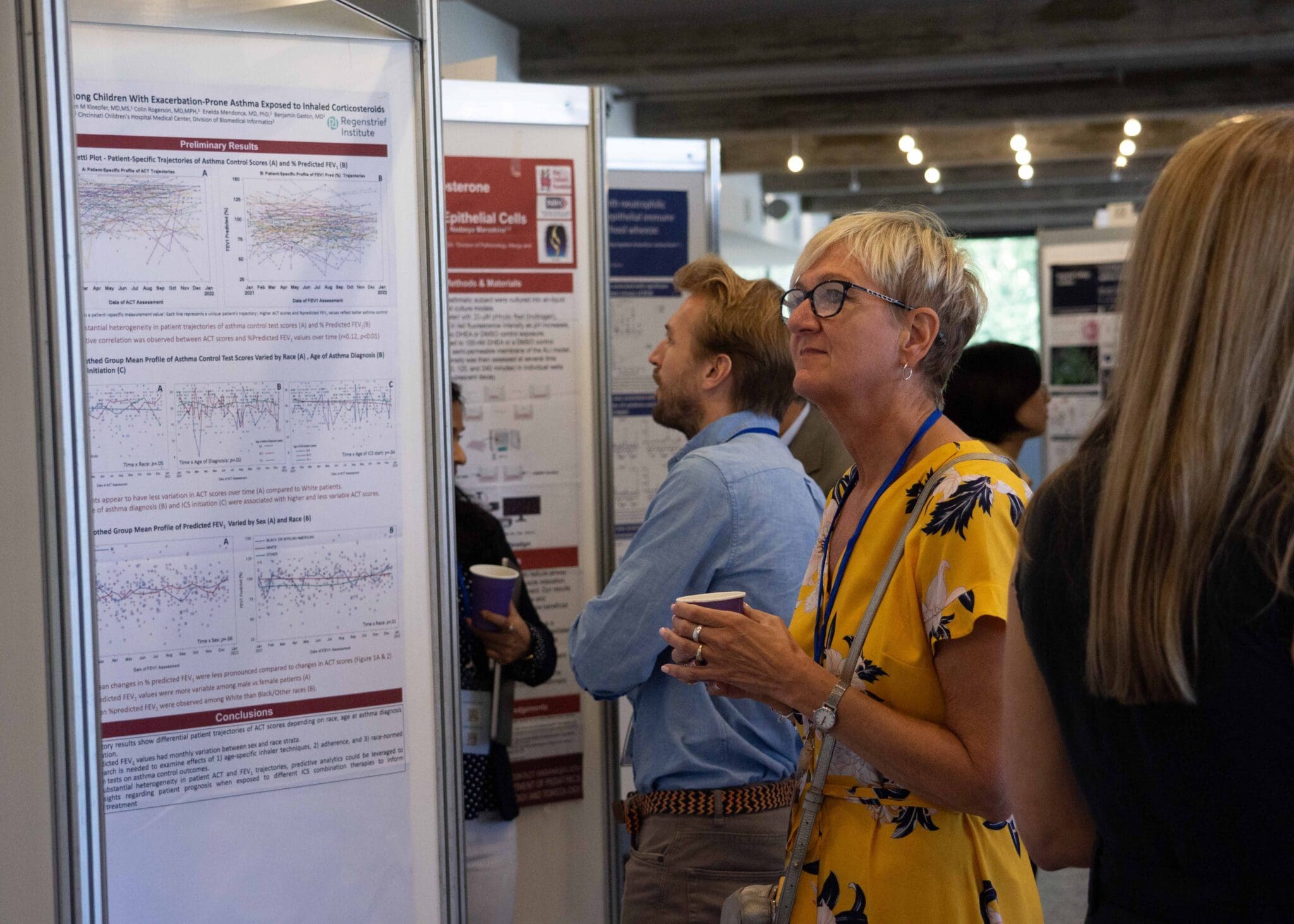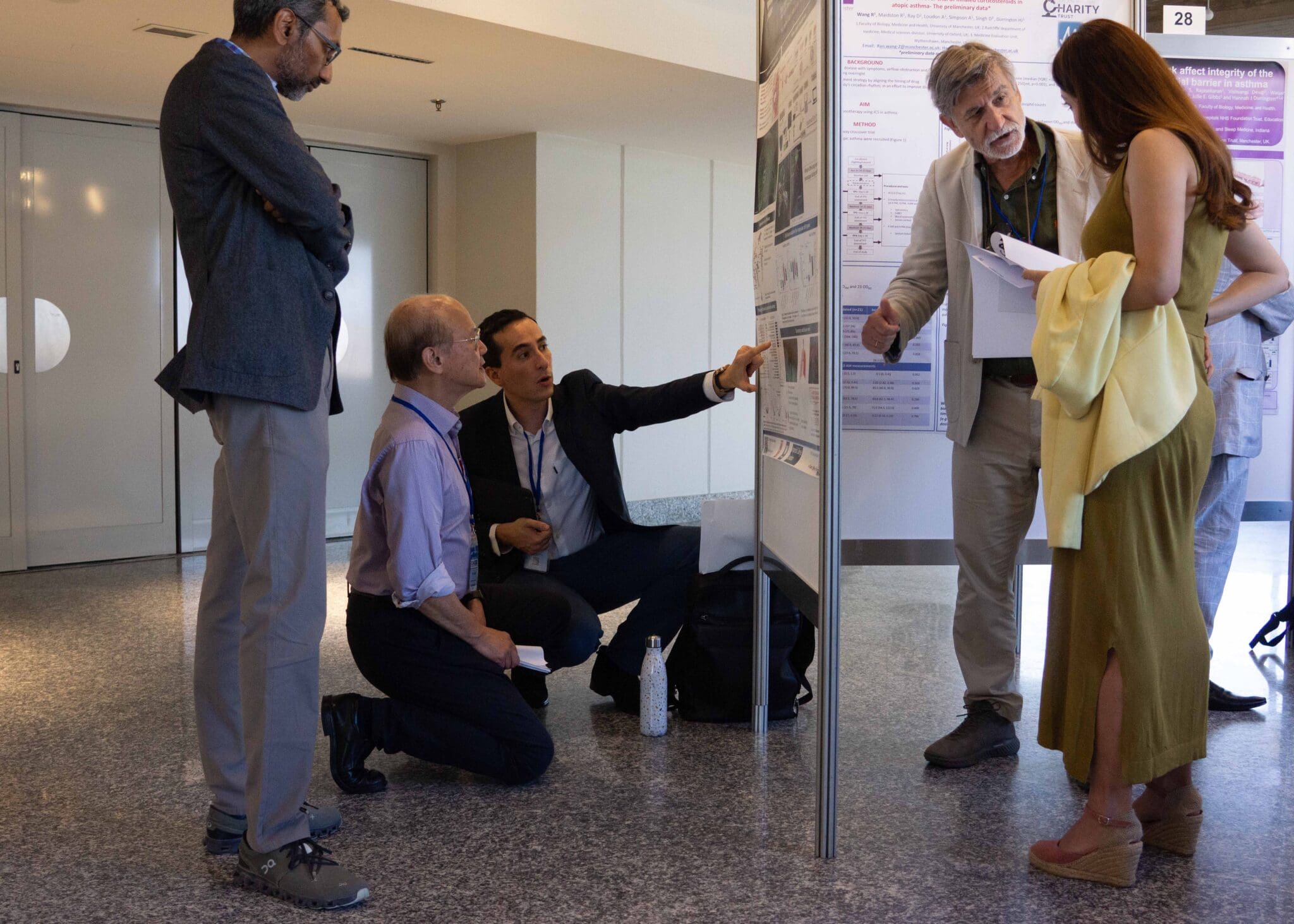International Collaborative Airways Network
The ICAN was created to promote innovation and strengthen international collaborations on airways diseases, and the currently unmet need in the space beyond well-described T2 pathways and treatments.
International Collaborative Airways Network
The ICAN was created to promote innovation and strengthen international collaborations on airways diseases, and the currently unmet need in the space beyond well-described T2 pathways and treatments.
Key Highlights
About 30-50 abstracts and posters are presented at each event. We also invite to attend academic, industry, NIH, ERS, and agency representatives.
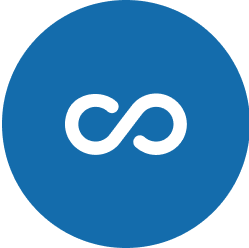
Innovative Research
ICAN is interested in promoting bioinformatics and other approaches to data analysis, through always welcomes any novel research approach.

Diverse Translations
ICAN strives to enhance and promote research work that can be translated to be applied internationally.

International Collaboration
ICAN aims to enhance this approaches with international collaborative efforts that bring together data generated by various research groups to arrive at novel and more generalizable findings.
ICAN Events
GAAPP will co-host the International Collaborative Airways Network (ICAN 3) meeting on May 15-16, 2025, in San Francisco, CA.
This two-day event highlights the work of early investigators in chronic airways diseases who are seeking novel approaches to topics like environment, genetics, nonT2 pathways, etc.
We will soon update our website with ICAN3 announcement and open abstract submission site in early January so stay tuned at this page.
About ICAN
The ICAN (International Collaborative Asthma Network) was created to promote innovation and strengthen international collaborations on asthma in general, with a focus on severe asthma, and the currently unmet need in the space beyond well-described T2 pathways and treatments.
We invite early career investigators to submit abstracts on severe and exacerbation-prone asthma, especially when unresponsive to current therapies. The ICAN is particularly interested in promoting bioinformatics and other approaches to data analysis that can be enhanced with international collaborative efforts that bring together data generated by various research groups to arrive at novel and more generalizable findings.
About 30-50 abstracts and posters are presented in each event with a focus on:
- Innovation
- Translation
- Need for international collaboration
We also invite to attend academic, industry, NIH, ERS, and agency representatives
Next ICAN meeting:
15 May 2025, in the ATS (American Thoracic Congress) 2025 in San Francisco, USA.
Abstract submission guidelines will be announced in early 2025 in this page
Past ICAN events (this is an accordion-like section):
- 2022 (May 2022, San Francisco, USA)
- Download the publication
- Add summary report
- 2023 (September 2023, Milan, Italy)
- Add summary report
- Photos and video carrousels
- Update on the current publication of the 2023 manuscript: 3 July 2024, Abstract Submitted to Annals of Allergy June 2024
- Download the abstract summary
Organizing Committee:
Praveen Akuthota, Fan Chung, Ratko Djukanovic, Hannah Durrington, Stephen Fowler, Benjamin Gaston, Nizar Jarjour, Eneida Mendonça, Salman Siddiqui, Samantha Walker, Tonya Winders, Joe Zein.
Inclusivity:
ICAN is committed to providing a safe, collegial environment that is inclusive and free from any form of discrimination. Participants are expected to be collaborative, considerate of other participants, and respectful of their viewpoints.
Have questions? Please visit contact GAAPP or visit this link for more information.
- Novelty of the idea, preferably independent of targets and pathways currently funded by major industrial partners in drug development and extending beyond T2 mechanisms (20 points).
- Proposed or already applied use of collaborative data analysis across different international asthma networks (20 points).
- “Shovel-ready” programming approach to integrated application of big data networks for use in understanding asthma (10 points).
- Strength of the preliminary data (note that the ICAN abstract can expand upon, but not duplicate, data being presented at the 2022 ATS) (15 points).
- IP and potential translational relevance to personalized diagnosis or treatment (20 points).
- Potential for creating a reduction in the burden of asthma (15 points).
- Additionally, we will evaluate whether the abstract is related to one of the priorities in Table 1 of the asthma research prioritization exercise (please name which one)
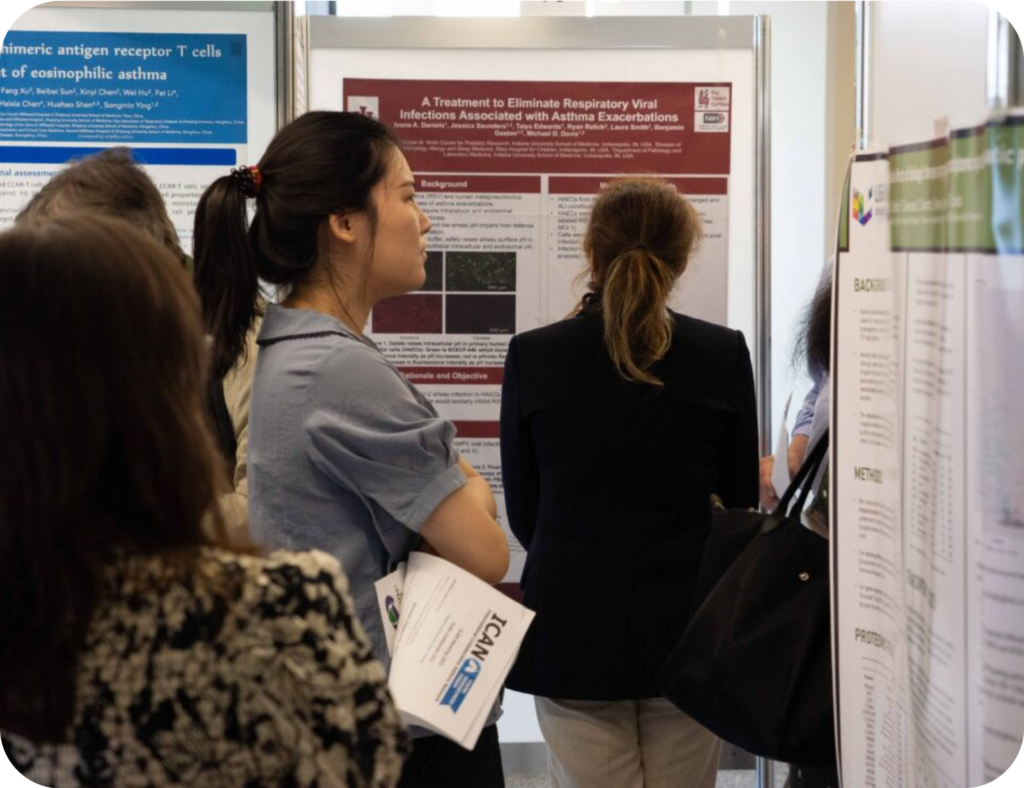
Organizing Committee

Praveen Akuthota

Fan Chung

Ratko Djukanovic

Hannah Durrington

Stephen Fowler

Benjamin Gaston

Nizar Jarjour

Eneida Mendonça

Salman Siddiqui

Samantha Walker

Tonya Winders

Joe Zein

Inclusivity at ICAN
ICAN is committed to providing a safe, collegial environment that is inclusive and free from any form of discrimination. Participants are expected to be collaborative, considerate of other participants, and respectful of their viewpoints.

